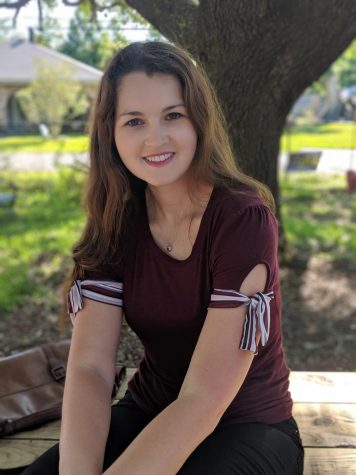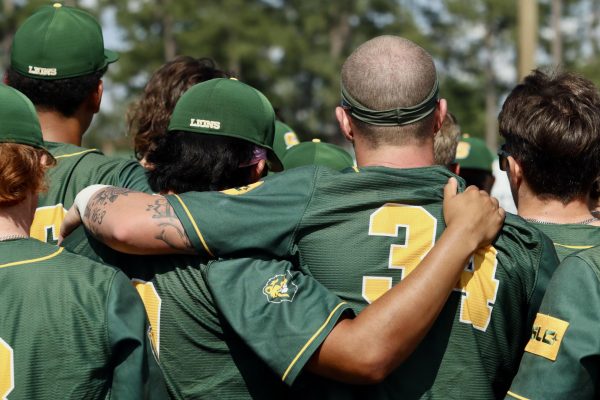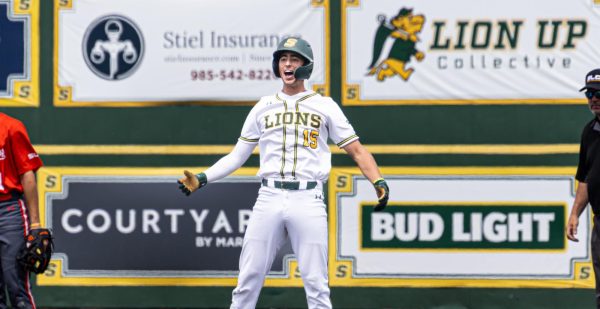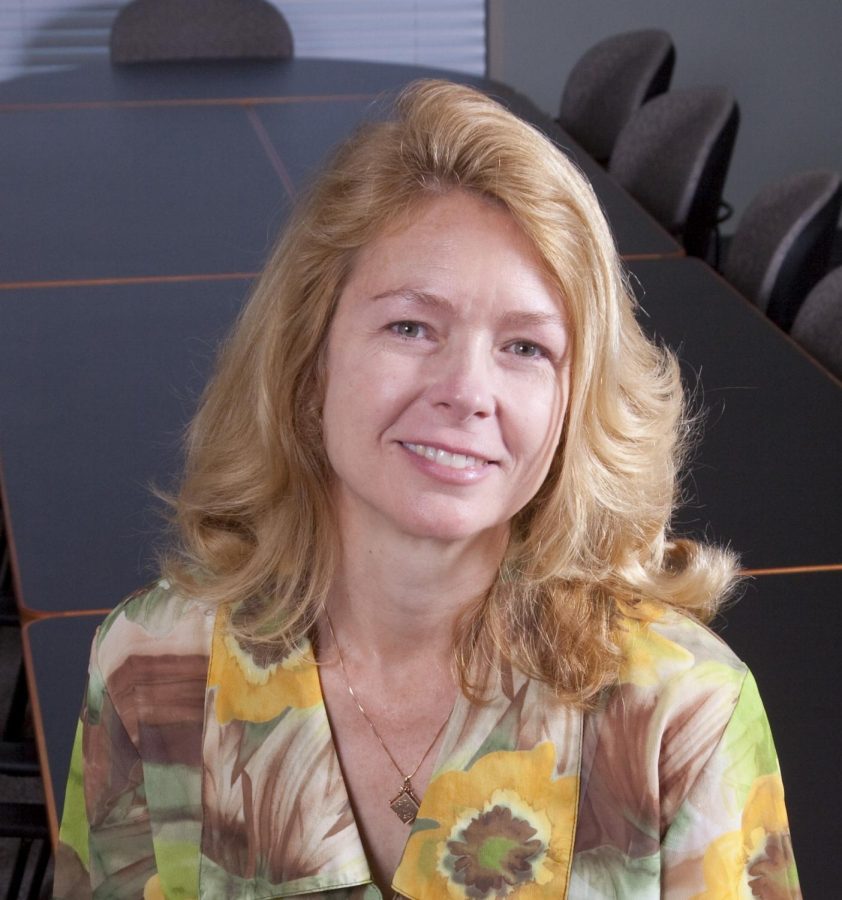Q & A : A historical view point and a peek into the world of politics
The coronavirus pandemic has been a constant force in the lives of citizens everywhere.
In order to provide a well-rounded understanding of the consequences of disease and pandemics on society, Margaret Gonzalez-Perez, Ph.D, a political science professor, shed some light on the political aspects of the pandemic. Samantha Perez, Ph.D, an assistant professor of history, also answered some questions regarding the historical context of diseases and how they have affected societies in the past.
Margaret Gonzalez-Perez
How has the COVID-19 pandemic shaped your view on politics within the United States?
“I think the pandemic has been kind of like this exponential force. It’s kind of magnified everything, and I think it’s made people more aware of problems. From March to May, you had the Breonna Taylor shooting and the George Floyd killing, and I think that brought those kind of problems—made them more apparent to me, and I think that because so many people were at home, it made more of white America aware of those kinds of things. I think it’s brought about an awakening.
One of the reasons that Black and Hispanic people in the United States are getting COVID at higher rates and also dying at higher rates, is that Blacks and Hispanics are over-represented on the front lines as ‘essential workers.’ It’s ironic that people who are the most essential to economic stability also tend to be low-wage workers with less access to benefits like health insurance and paid leave.
Also, an awakening of gender disparities. Feminists who study international political economy and even the domestic economy, they’re talking about something called the mom penalty and the dad premium. If you have two parents that are working and one of them has to stay home, it’s going to be the one who makes less money. That’s the mom penalty. Studies have shown that if you miss a year of work that amounts to a 39% loss in lifetime earnings, so that makes a big difference. And some people would say, ‘Well, but you’re going to have your husband to take care of you.’ Well, not necessarily, and some people aren’t even starting out with a husband. If you’re a single mom and you have to take time off work because you have a six-year-old and an eight-year-old who are remote learning and you can’t leave them home alone, what happens to your economic well-being?
I think that even if that doesn’t affect you personally, we’re more aware of it. I think the pandemic has made us more aware of the growing inequality in society, in gender and race and region certainly. And that some states are handling it very well, and some states are not.”
In what ways have political influences affected citizens all over the world during this pandemic?
“I think as far as international organizations, like the IMF—the International Monetary Fund—and the World Bank, they’ve been very active. But the IMF does short-term loans and the World Bank tends to do long-term loans, so they really had to kick into high gear with these emergency health preparedness loans. Trying to give loans to particularly the poorest countries, they can’t even afford masks and things. So, they’re trying to have masks and other kinds of PPE. It’s created problems with getting vaccinations for other things, like in poorer countries. They’re not getting treatment, and that’s happening here too in the United States. But in some of the poorer countries, they’re having these huge spikes worldwide in measles, in polio and in other diseases because either people are afraid to take advantage of those vaccines or they just don’t have access to those, so I think that’s kind of one problem.
I think some countries are handling it better than others, I think a lot of it depends on the leaders of the country. And part of that has to do with the kind of government they have.”
How has the pandemic impacted political relationships between various countries?
“I think the European nations have helped each other. But I think one of the things that’s happened is that you do have some leaders who aren’t as responsive to the pandemic. So for example, right now, Americans, it’s very hard for us to travel anywhere because other countries don’t want Americans in their country because they see us as sources of contagion. I think that’s creating a problem right now with the transitioning government.”
As a professor in political science, how has the pandemic contributed to your lesson plan this semester? What lessons do you think students who are seeking a career in politics should take from the pandemic and the political climate this year?
“I think that one thing is that they should realize that we are a global collective, that the world gets smaller every day. Sometimes you’ll hear different countries say, ‘We want to withdraw, we don’t want to be a part of globalization, we don’t want to be a part of global trade,’ but that’s really not a choice. I think I try to kind of remind my students that we are all in this together. Another thing is the growing inequality, which didn’t just start with the pandemic. The wealthy have been getting wealthier, and the poor have been getting poorer. Even within the United States, the wealthy are starting to concentrate on wealth, and it’s almost like we’ve come full cycle in 120 years. We’ve got more people down at the bottom who are the have-nots, and I think the pandemic has made us more aware of that. That there are some people who simply have to go to work. I don’t know if everybody is more aware of that, but I’m trying to make my students more aware of that. That if we can lift everyone up, that will be better than just lifting a handful.”
Samantha Perez

What historical events, if any, can you compare to the coronavirus pandemic? Is there anything from the past that current leaders could have possibly used to handle the current pandemic better?
“A lot of news articles and social media posts have compared the COVID-19 outbreak to that of the Spanish Flu in 1918. With World War I conditions enabling the spread of the disease, the Spanish Flu’s H1N1 virus infected one-third of the world’s population and led to approximately 50 million deaths. Cities across the United States, including New Orleans, had to confront deadly outbreaks and enacted social distancing measures in response: schools were closed temporarily, public festivities canceled, and restaurants had to limit available seating. These are all protective measures that we experienced in response to COVID-19.
As a historian, I always believe that we can gain insight and perspective by studying the past. In this case, I think the valuable lesson is that our communities, whether locally in Louisiana or across the globe, have faced devastating disease outbreaks before. We have grieved tremendous loss of life, sacrificed normalcy and faced the economic consequences of necessary closures. These sufferings have tested our communities in the past, just as they are today. By studying disease prevention in the past, being responsible and taking appropriate precautions to protect our neighbors, we will be better able to mitigate the impact of COVID-19. By understanding the historical context, perhaps we can better view this pandemic as an opportunity to strengthen as a community motivated by empathy, to care for our neighbors’ health and livelihoods, protect those who are vulnerable and band together—as we have done before—to overcome this latest hardship together.”
Historically, what impact have disease outbreaks had on civilizations after the outbreak was contained? What usually happened as a result of these disasters?
“As a Renaissance historian, I mostly examine the social consequences of the Black Death plague pandemic in the mid-1300s and its recurrences in the following centuries. The records from Italian chroniclers that I work most closely with describe the emotional toll of such population loss and the socio-economic fallout. Agnolo di Tura, a writer from Siena, describes burying his five children with his own hands. In that same city, civic and religious leaders were forced to abandon the planned expansion of the cathedral, an incomplete project that tourists can still view today.
The Black Death is part of a series of devastating events understood as the Fourteenth-Century Crisis, which included plague, climate change, famine, war and religious schism. These environmental, social, economic and political crises contributed to the decline of the Middle Ages and the need for tremendous change and recovery that became my historical focus, the Renaissance. The Renaissance is commonly understood as a period of “rebirth” following the fourteenth century’s low points and is defined by great artistic and cultural advancement, intellectual discovery and economic development. 2020, with its own range of crises compacted into a single year, including COVID-19, racial injustice, natural disasters and political turmoil, offers an interesting comparison, and I look forward to seeing how our current generation will define its eventual recovery from this year’s events.”
Your donation will support The Lion's Roar student journalists at Southeastern Louisiana University.
In addition, your contribution will allow us to cover our annual website hosting costs.
No gift is too small.




